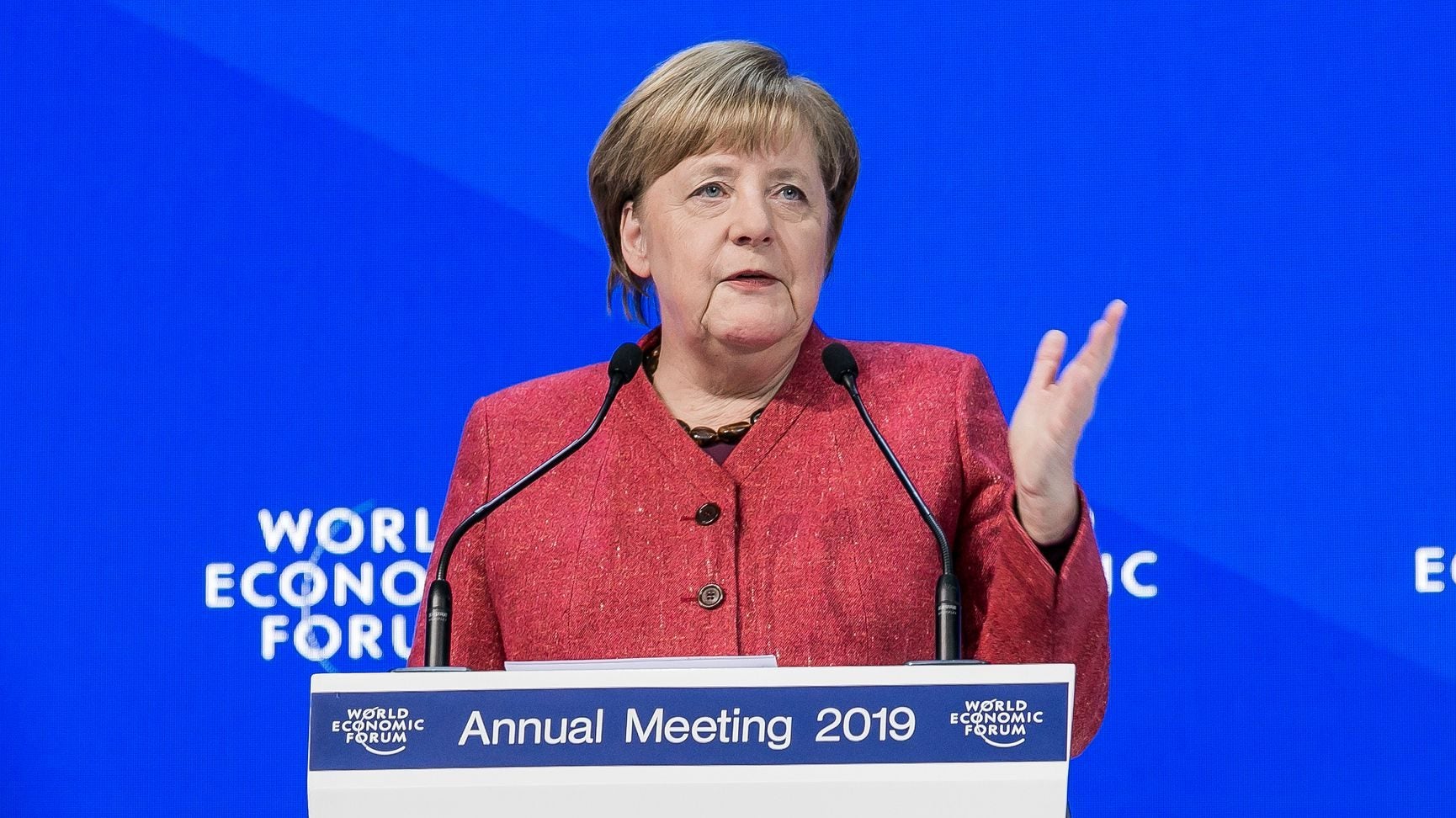Merkel makes a last-ditch plea to restore the international order led by the West
In what could turn out to be her last speech as German chancellor at the World Economic Forum in Davos, Angela Merkel made a strong plea for the world not to abandon the international order that rose from the ashes of WWII.


In what could turn out to be her last speech as German chancellor at the World Economic Forum in Davos, Angela Merkel made a strong plea for the world not to abandon the international order that rose from the ashes of WWII.
“After the horrors of the Second World War, the people who were then in power and the people who had responsibility had certain insights and they knew what they were doing,” Merkel said today, praising international organizations such as the World Bank, IMF, and OECD. “We shouldn’t these days cast their decisions aside and the systems that they set up and treat it lightly, because they did so against a wealth of experience.”
Though it was a classic Davos speech endorsing multilateralism, these sorts of remarks are in fact becoming increasingly rare at the forum. Populist politicians have gained more power, while political crises for liberal leaders have forced them to stay home and focus on domestic matters. The first world leader to speak in Davos this year was Brazil’s newly elected right-wing president Jair Bolsonaro. One of the darlings from last year, France’s Emmanuel Macron, is at home dealing with the “yellow vest” protests.
“The international order is under pressure,” Merkel said. She stressed that this beleaguered system has lifted millions of people out of extreme poverty and sounded convinced that the global community could meet the UN’s goal of completely eradicating extreme poverty by 2030.
Merkel announced last year that she would step down as chancellor by 2021, and in December her political party elected a new leader, Annegret Kramp-Karrenbauer (who came to Davos this year, but kept a low profile). It is likely that Merkel, the woman who has been the de facto leader of Europe for nearly two decades, will step down before the end of her term.
The old order of Bretton Woods-era players, such as the World Bank and World Trade Organization, have been slow to reform, she added. Others are stepping in to fill the void. “Apart from the World Bank, we now have an Asian investment bank for example. Apart from the G20, we have a Shanghai organization for economic cooperation, where you have China, Russia and other countries,” Merkel said. “China is seeking a 16-plus-1 format in order to work together with parts of the European Union. That ought to alarm us in the sense that it is a wake-up call.”
Although Western institutions need to reform more quickly, Merkel said, the new thrust of nationalism won’t work. Merkel’s speech came a day after France and Germany signed a new treaty promising to work more closely together on European and international issues, as well as developing Europe’s shared military capabilities.
“We can only make progress if we abandon this way of thinking that we can go it alone,” the chancellor said.